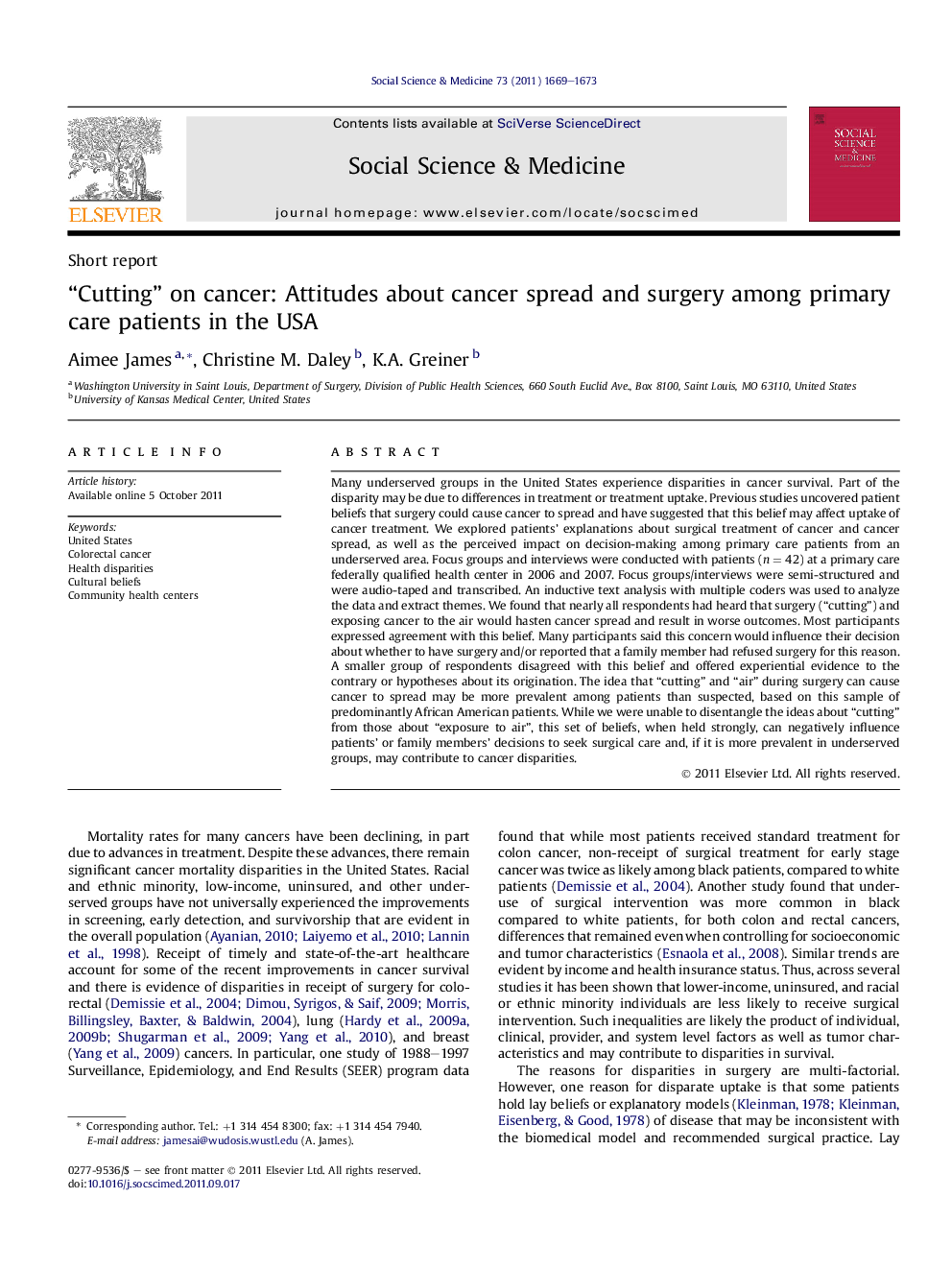| Article ID | Journal | Published Year | Pages | File Type |
|---|---|---|---|---|
| 952702 | Social Science & Medicine | 2011 | 5 Pages |
Many underserved groups in the United States experience disparities in cancer survival. Part of the disparity may be due to differences in treatment or treatment uptake. Previous studies uncovered patient beliefs that surgery could cause cancer to spread and have suggested that this belief may affect uptake of cancer treatment. We explored patients’ explanations about surgical treatment of cancer and cancer spread, as well as the perceived impact on decision-making among primary care patients from an underserved area. Focus groups and interviews were conducted with patients (n = 42) at a primary care federally qualified health center in 2006 and 2007. Focus groups/interviews were semi-structured and were audio-taped and transcribed. An inductive text analysis with multiple coders was used to analyze the data and extract themes. We found that nearly all respondents had heard that surgery (“cutting”) and exposing cancer to the air would hasten cancer spread and result in worse outcomes. Most participants expressed agreement with this belief. Many participants said this concern would influence their decision about whether to have surgery and/or reported that a family member had refused surgery for this reason. A smaller group of respondents disagreed with this belief and offered experiential evidence to the contrary or hypotheses about its origination. The idea that “cutting” and “air” during surgery can cause cancer to spread may be more prevalent among patients than suspected, based on this sample of predominantly African American patients. While we were unable to disentangle the ideas about “cutting” from those about “exposure to air”, this set of beliefs, when held strongly, can negatively influence patients’ or family members’ decisions to seek surgical care and, if it is more prevalent in underserved groups, may contribute to cancer disparities.
► The belief that cutting on cancer and exposing it to air causes cancer to spread was common in our study population. ► Participants reported that family members had declined surgical intervention because of fear that it would worsen the cancer. ► Statements about “cutting” and “air” often co-occurred with those about perceived inefficacy of cancer treatment.
